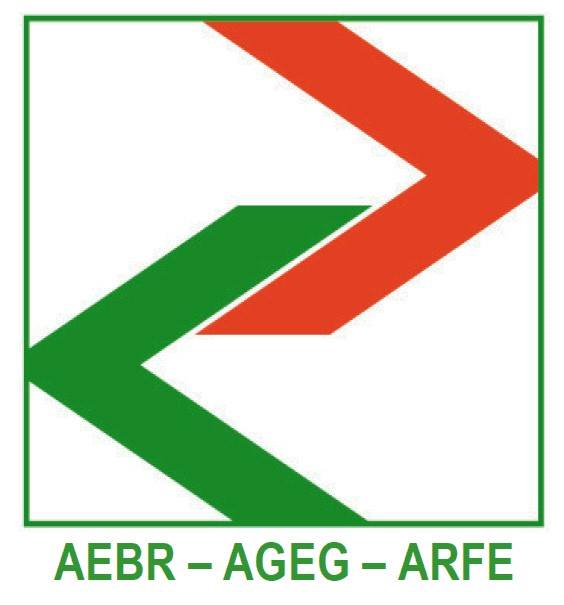The Interreg project Down to Earth, under the Interreg Europe programme, aims to address one of the most critical issues of our time: climate change and its impact on rural communities. The primary goal is to enhance the resilience of rural areas across Europe in the face of climate-related disasters. Climate change affects everyone, but it hits rural regions particularly hard.
For example, recent floods in Thessaly, Greece, from increased extreme weather events including heavy rainfall resulted in severe damage to infrastructure, hundreds of homes, and agricultural land and the displacement of residents for an unknown amount of time. The area will take years to recover. Such floods or disasters in general, are expected to intensify and become more frequent due to climate change. Adding to this reality, the depopulation of rural areas may lead to further deterioration of the situation, since the limited human force may lead to inadequate maintenance of key strategic systems like drainage systems etc, and the reduction of the overall resilience to natural disasters. Therefore, I am happy to volunteer in the Down-to Earth project that takes immediate action and addresses the climate crisis.
Our project has been actively involved in both research and policy development. Over the past few months, we have collaborated with researchers, experts, and stakeholders to find innovative solutions to the challenges facing rural communities acknowledging that any solution to climate change should be more of a hybrid strategy, that involves both government and their administrative agencies as well as the rural population and communities, rather than a top down system that is broadly applied.
Recently, our team organised community outreach events in the affected rural areas of Kalavryta, Thermo and Xiromeno in Western Greece. The events facilitated constructive dialogue among stakeholders and the rural communities’ representatives. In a broader plan, over the next four years, the programs agenda focuses on three key themes: addressing environmental risks linked to depopulation, overcoming access barriers for young farmers in depopulated areas, and developing policies to empower farmers and land managers in the fight against climate change. Each year, the program aims to compile regional and thematic reports to share insights, fostering mutual learning and collaboration to create a bidirectional communication channel between agencies and rural communities.
Rural communities are the primary beneficiaries. By strengthening their resilience to environmental disasters, we not only protect livelihoods but also create economic and social opportunities that can revitalize rural areas.
Moreover, a decentralized strategies empower local communities to take ownership of their resilience-building efforts while simultaneously allowing for the customized and adaptive strategies to address specific local needs, such as strengthening infrastructure against specific types of climate-related disasters or implementing sustainable agricultural practices suited to the local ecosystem. Teamwork is of essence and a shared vision is necessary among project partners. Each partner coming from a different background brings insights—whether in research, policymaking, or community engagement. Teams consisting of members from diverse backgrounds, researchers, and volunteers, such as climate science, engineering, social sciences, economics, policy, and humanities, can offer a wide range of perspectives and expertise. This diversity allows for a more comprehensive understanding of the complex issues surrounding climate change, local policies, legislation etc. and enables the development of holistic solutions that address various aspects of the problem.
By incorporating multiple perspectives and methodologies, teams can conduct more robust analyses and mitigate potential biases, leading to, more reliable and credible research outcomes and eventually more successful policies and strategies.
In this diverse scenery it is important to create clear channels of communication, that are essential for effective cooperation among teams. Regular meetings physical or online, email updates, phone calls, and collaboration platforms carry the exchange of information, updates on project progress, and coordination of activities.
Organizing open events in local communities has proven to be a successful practice. Locals feel more comfortable sharing their problems and their ideas in a less formal yet familiar environment. Also, such events strengthen the relationships between researchers and locals by mutual respect, trust and building positive relationships though interpersonal exchange of ideas and feedback.
In conclusion, by fostering collaboration among diverse stakeholders and implementing hybrid strategies that combine top-down policies with grassroots initiatives, the project aims to enhance resilience and empower local communities. Through research, policy development, community outreach, and ongoing communication, the project strives to address the multifaceted impacts of climate change on rural areas.
By prioritising the needs and perspectives of rural residents, the project not only mitigates environmental risks but also fosters economic and social opportunities for revitalisation.
The programs’ structure and extroversion create a great environment for volunteer work and provide a well-rounded understanding of climate change issues.
– Stavroula , IVY Project Partner at the University of Patras, for the Interreg EUROPE project Down to earth


